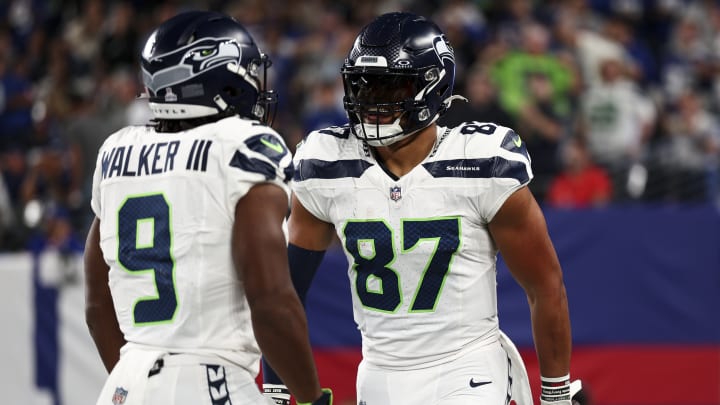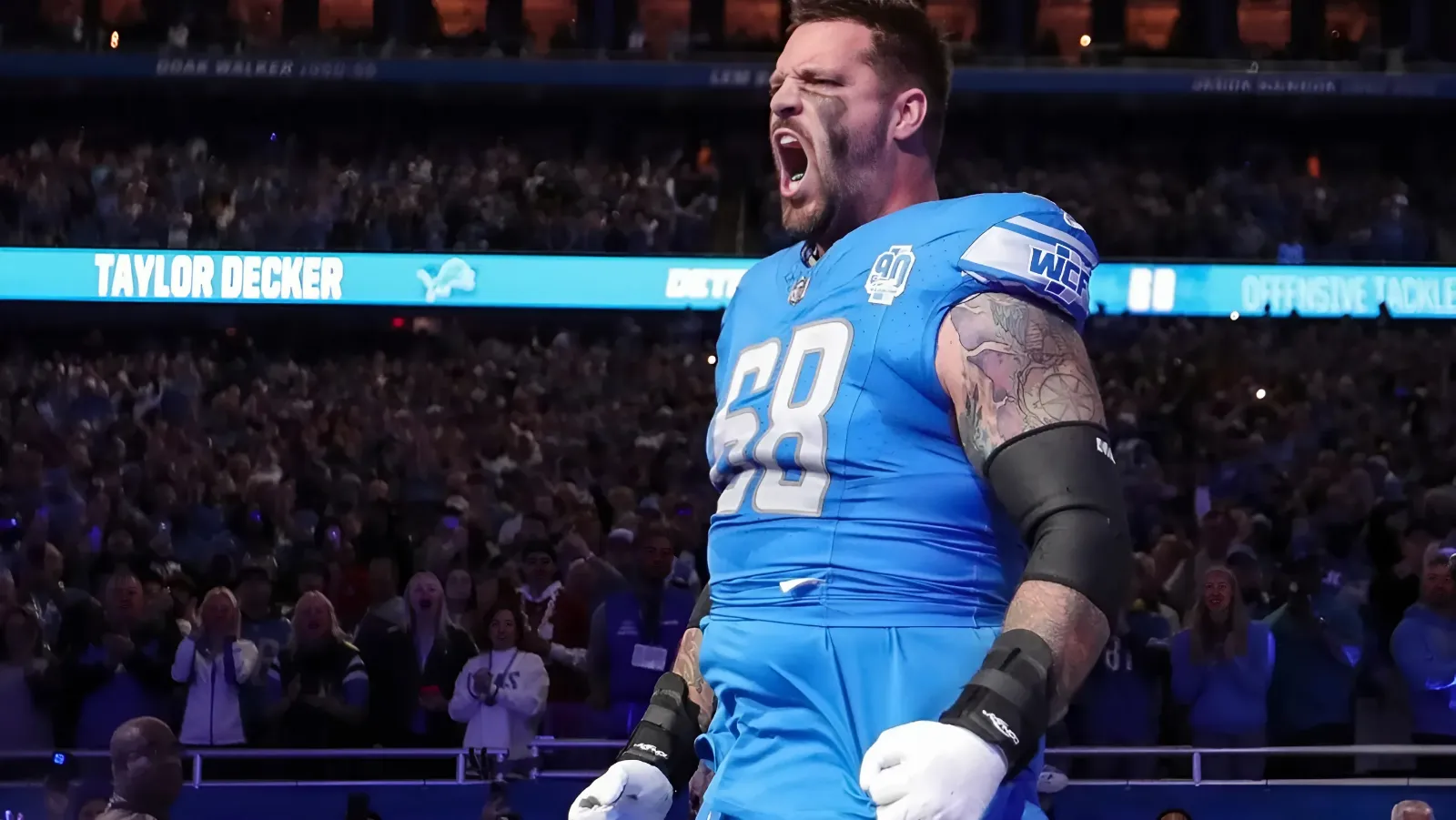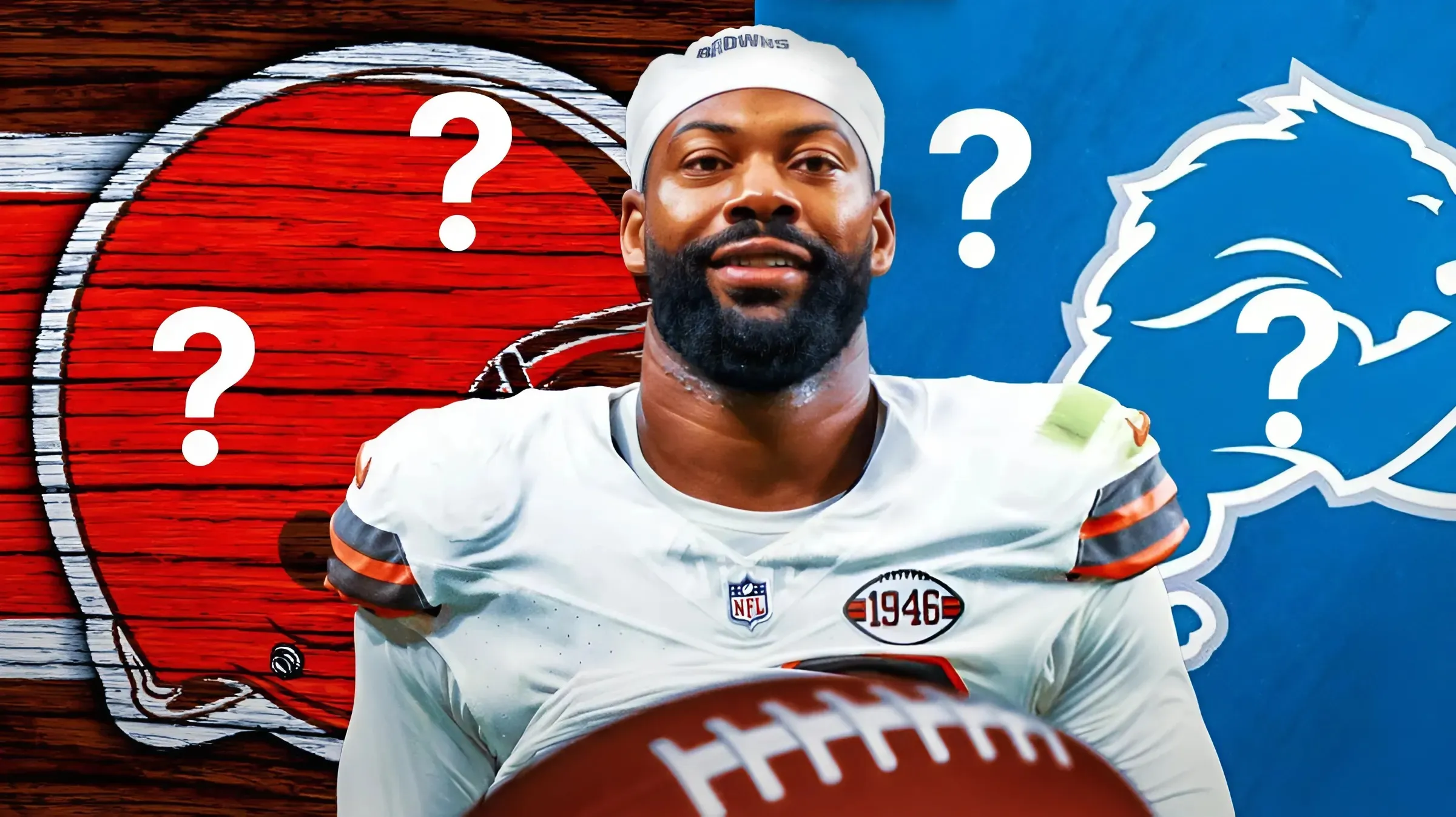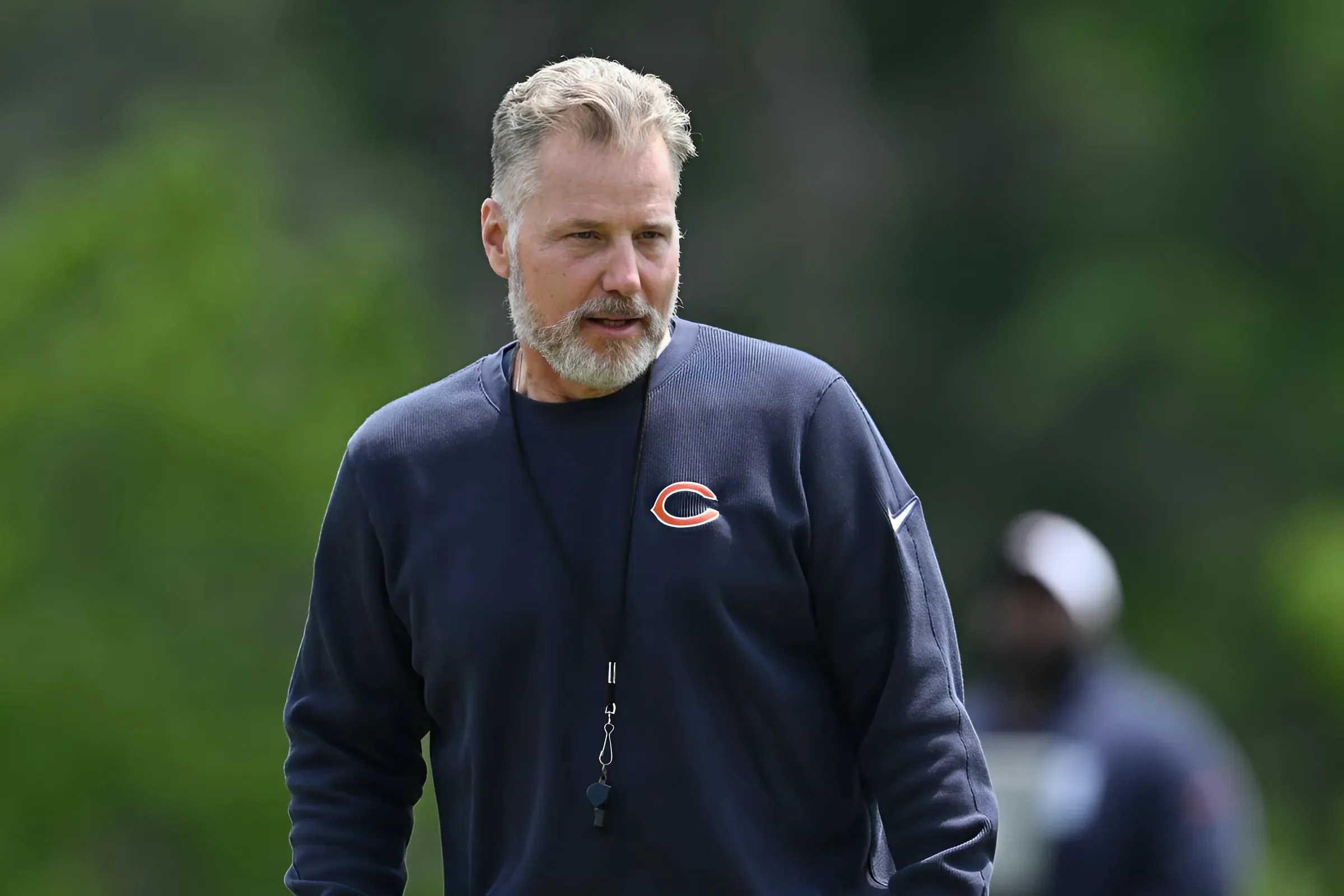
The Seattle Seahawks have several excellent receivers and just one football. This is how Ryan Grubb will keep them all happy.
Don't worry, 12s. I'm not bringing you some amazing new scam - sorry, proven sales technique - to grow your business overnight. Not will I show you how to harness the power of AI to write a dozen books a month and dominate the Amazon sales charts. Nope. we're just going to talk a little football. Seahawks football, the only kind that matters.
Most of the buzz among the Seahawks faithful has been focused on new head coach Mike Macdonald. I mean, he is the first new HC in Seattle in 14 years, so yeah, it makes sense. He's the youngest coach in the league, the latest defensive guru, and has taken on the job of rebuilding the Hawks' identity as the attacking defense it once was. But Seattle's new offensive coordinator faces a job that's just as important.
I was going to write the Hawks have to hit on all eight cylinders, but that's so 2007. But as I'm not at all convinced that all-electric is the answer either, I'll go with four cylinders for a hybrid. And I'm sure you really care about my automotive preference. But four cylinders gives me a cleaner analogy to the Seahawks offense, so I'm sticking with it.
We all know there are two main components to the offense; the run game and the passing game. I add that little primer for the occasional Cardinals fan who wanders in by mistake. I'll further divide the passing game into three tiers: the deep game, the intermediate game, and the short passing game. Yes, there's a lot of hybridization in those tiers. Many Xs and Os junkies view screen passes as basically long handoffs. But every time JSN caught one of those patented Shane Waldron three-yard dump passes in the flat, Geno Smith got the credit too. So, those are passes.
Another way to break down the passing game is by the intended receiver group; wide receivers, tight ends, and running backs. For my purposes, I'll divide the attempts among the Hawk receivers, rather than by the depth of the target. That's certainly worth examining, but that's also a different subject. Note the title: "Keep receivers happy". If you're unsure why that might be important, you haven't followed many contract negotiations in the NFL.
So, who do the Seahawks have to keep happy - I mean, within reason? Laviska Shenault Jr. may want 50 targets, but his first concern should be making the 53-man roster. So we're not going that route. The Hawks have three legit stars at wide receiver. I think it's fair to say Jaxon Smith-Njigba belongs in that category with Tyler Lockett and DK Metcalf. I agree he's ready for a breakout year in his second season in Seattle. We can't forget the phenomenon of More Bobo, either. Jake will get his touches after the big three.
Then we have the tight ends. This year, the bulk of the targets should go to Noah Fant. Listen, rookie A.J. Barner is a far better receiver than he's given credit for, but Fant is still the main guy. He should get twice as many targets as the rest of the TE room combined. I'm a big fan of both Colby Parkinson and especially Will Dissly, but there is no way they ever should have gotten 56 targets last year compared to Fant's 43.
That brings us to the running backs. Kenneth Walker III has been targeted 35 and 37 times in his two seasons with the Seahawks. Stablemate Zach Charbonnet saw 40 targets last year. Walker had almost exactly twice as many carries as Charbonnet (219 to 108), but their snap count wasn't that far apart (502 to 478, advantage Walker again). So you could say that the former coaching staff saw Charbonnet as more of the "receiver back", Walker wasn't exactly left out of the aerial attack. Kenny McIntosh can be expected to pick up what little crumbs are left by the departure of DeeJay Dallas.
So how exactly do you balance all of those targets equitably across the fiield? Make no mistake - the primary goal here is to win football games, not soothe football players egos. But when done correctly, the best offensive coordinators can achieve both goals. I have zero doubt that the Seahawks finally have the right man for the job,
When John Schneider announced that the next OC of the Seattle Seahawks was Ryan Grubb, that got almost as much buzz buzz as Macdonald's hire. After all, it's a pretty bold move to bring in not only a rookie head coach but an offensive coordinator who's never called a play in the NFL. The real shocker was that Grubb had never held any job in the NFL, let alone run an offense.
As surely almost all 12s know, Grubb led the University of Washington to the nation's best passing attack in 2022, and the second-best last year. Some of you might be worried about an apparent decline in the Huskies offensive production. They dropped from 39.7 points per game in 2022 to "merely" 36.0 last season.
According to sports-reference.com, you can blame that on their strength of schedule rising from 67th toughest in the nation in 2022 to the most difficult of all 131 Division I teams last year. That, my friends, is a pretty solid record.
Before his run at UDub, Grubb was the OC at Fresno State for three seasons. The Bulldogs led their conference in total offense in two of those three seasons. As the offensive line coach at Eastern Michigan, he helped the Eagles set the school record in total offense, points scored, and passing yards.
Go back further to his seven seasons at the University of Sioux Falls, the last four as the OC. He didn't do much there, just a pair of NAIA titles and a runner-up finish for the Cougars. I think it's fair to say the man has a track record of success.
The one thing you'll see at each of his stops is that Grubb nearly always had a strong ground game to anchor that passing attack. At Sioux Falls, the ground game never accounted for less than 39 percent of their total yards and reached as high as 57 percent. At Fresno State, the Bulldogs racked up 41, 26, and 30 percent of their yards on the ground. Grubb's offenses gained 26 and 28 percent of their yardage via the ground game at Washington. That percentage is going to drop when you have Jake Haener and Michael Penix, Jr. under center.
Asked about how he views the importance of the running game, Grubb had this to say, as quoted by Corbin Smith for Sports Illustrated: "We are going to be a physical team in Seattle...I think that when you have an established run game, it makes calling those other plays, the auxiliary plays off of it a lot easier honestly. It's when you don't have the presence of a run game that things can get really tricky.”
Don't be fooled by the flashy numbers that Penix posted for the Huskies. Grubb came up as an offensive line coach, after all. In nine seasons as an offensive coordinator, his offenses rolled up more yards on the ground than through the air. Unless you're at Air Force (ironically), that's practically unheard of in today's game. But that's exactly what the author of one of the era's most prolific passing attacks has done when needed.
Grubb has typically used zone runs as his teams' go-to scheme. Last year, though, the Huskies ran gap plays more often. Simply put, in zone schemes each lineman is responsible for his area or zone. If there's a defender there, he blocks him. If not, he looks for the next closest defender in his zone of responsibility. In a gap scheme, the linemen are responsible for blocking individual defenders. They'll leave one gap, which will then be filled by a guard that pulls toward the play. Hopefully, they blast the opposition into the next zip code to open the hole.
Whether Grubb's offense leans more heavily toward gap or zone will depend in large part on his assessment of the O-line's ability to move, and how quickly his backs attack the resulting hole. One thing we can be sure of: he won't let Walker and Charbonnet languish with six or seven carries for an entire half, as we saw all too often in the past several seasons. While he won't be running the offense, Coach Macdonald knows first-hand how important the running game can be, too.
I won't break down the number I see for each receiver here. We'll get to that another time. For now, remember that for most players, nothing beats winning. Winning keeps players happier than anything. Not every player can catch 100 balls - but everyone can be a champion. By running the ball to set up the pass, Ryan Grubb's offense will make that happen.



